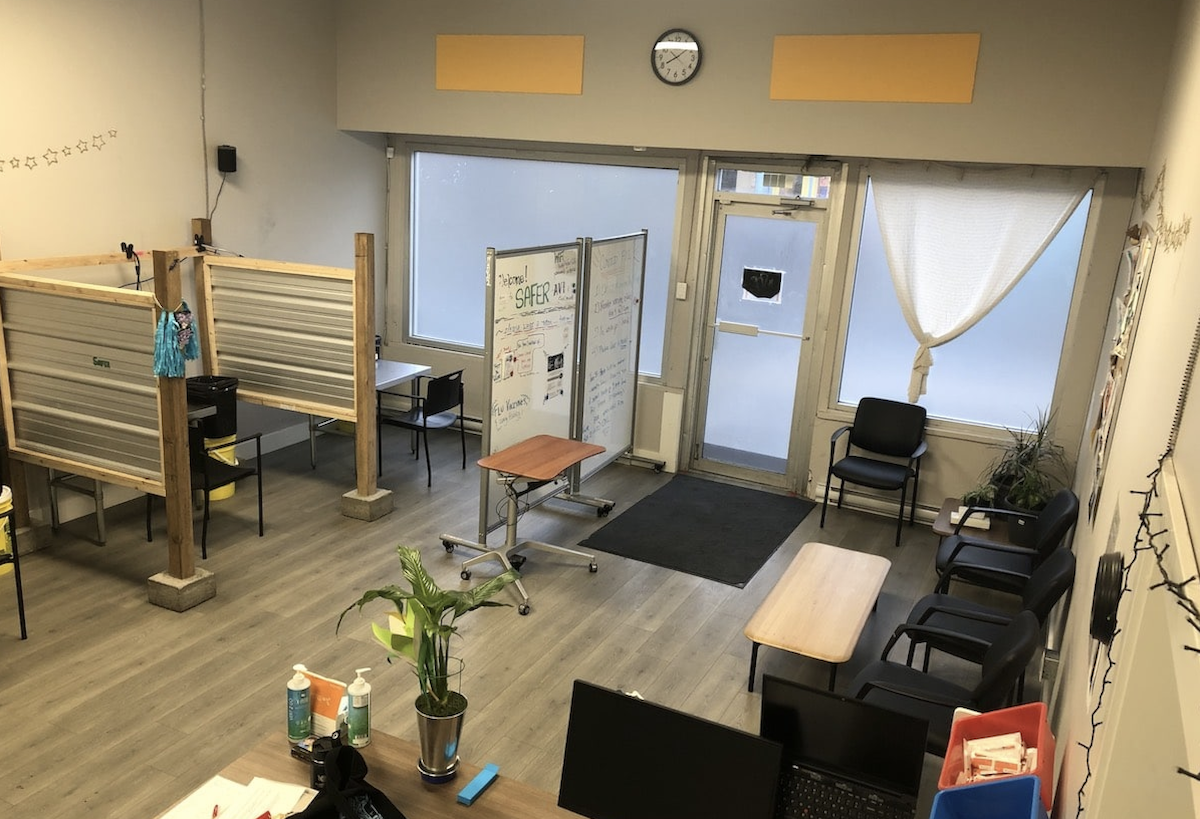

A bill to authorize overdose prevention centers in Massachusetts was unanimously approved by the state Senate, but won’t move forward this session after lawmakers from both chambers failed to reach a last-minute deal on July 31. Harm reduction advocates in the state have been calling for the facilities for years, as a desperately needed measure to reduce overdose deaths.
Overdose prevention centers (OPC, also known as safe consumption sites), allow people to use drugs on the premises, with trained staff, peers and critical resources like naloxone on hand. A large body of evidence shows them to be effective in preventing deaths, among many other benefits for people who use drugs.
The Massachusetts bill, Senate Bill 2898, is a package of provisions related to overdose and substance use disorder treatment. It would allow municipalities to open facilities that provide “supervision of persons who consume pre-obtained substances.” There would be three steps before a city could open one: approval from the local health board, city council and state Department of Public Health.
After being introduced late in the legislative session, the bill moved quickly through an amendment-making process. On July 30, the Senate voted in favor by 38-0. But another step was needed.
“I think there are [enough] members in both chambers to see this realized, but there’s a question of whether we can get it done on such a rapid timeline.”
The House had previously passed a different drug treatment package on June 13, containing no OPC provisions. In order to send a version of the OPC bill to Governor Maura Healey (D), thought likely to be supportive, lawmakers from both chambers would have to reach agreement in a conference on the evening of July 31, the final day of the legislative session.
“The formal session ends in Massachusetts by this evening, so we would probably need to reach an agreement by this evening if we’re going to realize overdose prevention centers, ”Senator Julian Cyr (D), a supporter of OPC, told Filter on July 31. The outcome was “unclear,” he said then. “I think there are [enough] members in both chambers to see this realized, but there’s a question of whether we can get it done and pass both chambers on such a rapid timeline.”
On July 30, after the Senate approved its bill, House Speaker Ronald Mariano (D) had criticized the timing. “My members deserve the opportunity to debate and discuss and make decisions on major policy issues like the injection sites,” he told AP. “To throw it in the bill at the very last minute knowing that it will be difficult for me to even put a conference committee together just tells me you’re not serious about getting the bill done.”
Sure enough, the OPC bill was not among the July 31 deals that lawmakers reached by the end of the night.
Sen. Cyr, who has been a longtime advocate of OPC in the legislature and sponsored a different, standalone OPC bill earlier in the session, is among those disappointed.
“A number of us feel with the fentanyl crisis, the poly-substance epidemic continuing unabated, we cannot count out any evidence-based intervention that has the potential to save lives,” he said. “Every year for the last eight years, more than 2,000 of our neighbors and loved ones here in Massachusetts have died of overdose. We believe we must deploy harm reduction tools now to arrest overdose deaths and save lives.”
Massachusetts suffered steady increases in overdose deaths throughout the 2000s, then a devastating surge after 2010—and again in 2020. The total in 2023, an estimated 2,125 deaths, was a decrease on the year prior. But deaths have continued to rise for specific demographics, including Black men.
“An evidence-based, life-saving tool that is aligned with a comprehensive, public health approach to reducing harm in the Commonwealth.”
There has been recent momentum toward OPC in the state. In December 2023, the public health department released a feasibility study on the facilities. It concluded that they are both “feasible and necessary,” and “represent an evidence-based, life-saving tool that is aligned with a comprehensive, public health approach to reducing harm and improving wellbeing in the Commonwealth.”
That represented a major break from the administration of previous governor Charlie Baker (R), who refused to go against federal policy, describing the idea of OPC as a “non-starter” because federal prosecutors would try to shut the facilities down.
The study conducted under Gov. Healey noted the legal risks due to federal law, including the prospect of doctors and nurses working with OPC losing their licenses. The public health department recommended that state lawmakers put in place legal protections shielding the centers from criminal liability, as long as they operated according to state rules.
The fight for OPC in Massachusetts will continue—and cities there are ready to move forward.
In April 2023, 16 cities in the Boston metro area approached the governor’s office, asking her to consider authorizing and funding the sites. Among them was the city of Somerville, which commissioned a report that recommended opening an OPC there, and allocated $170,000 in funding for a proposed facility.
Photograph of booths at Victoria SAFER Initiative in Canada via SAFER